What is this?
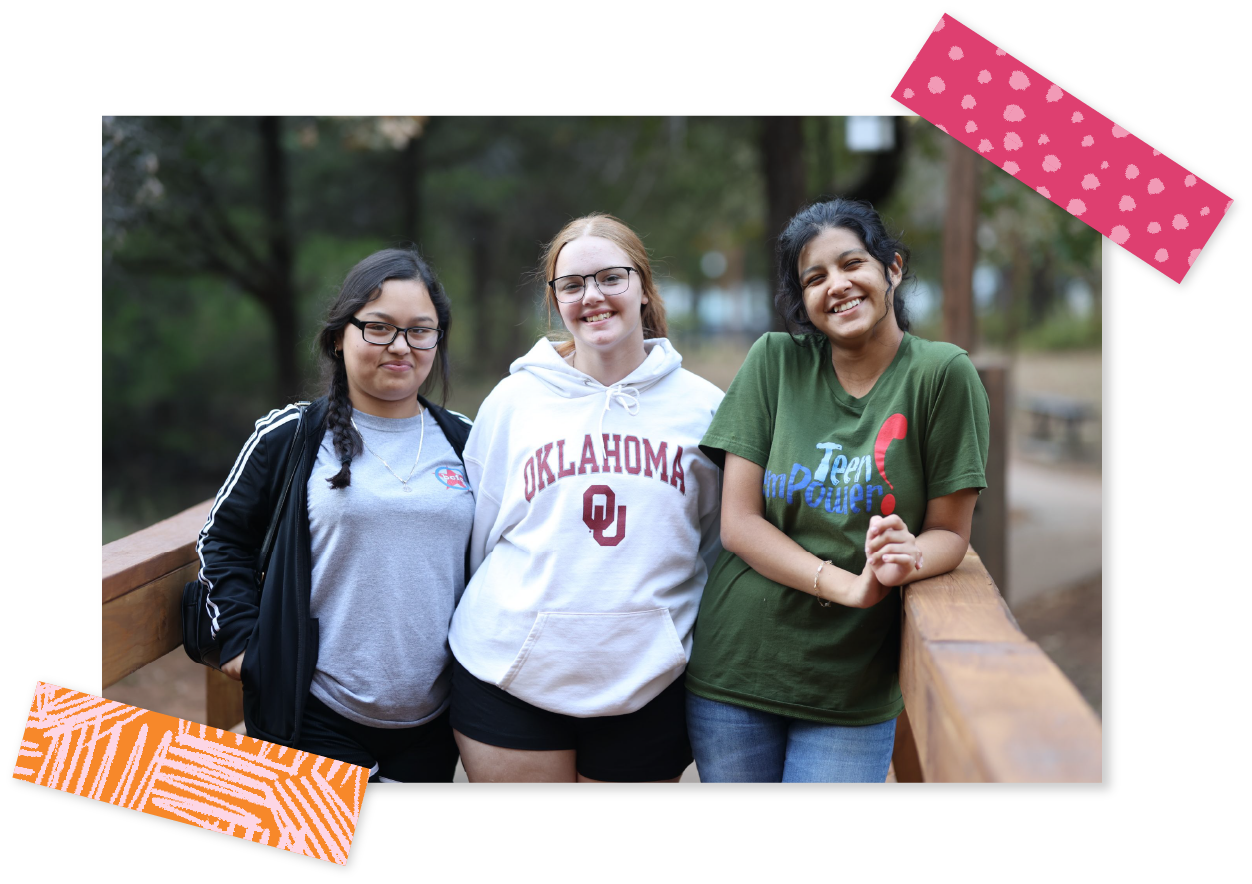
Teen Empower is a non-profit, and it's all about educating teens on sexual health topics. We give young people the knowledge, skills, and confidence to protect their health, build positive relationships and expand opportunities for their future. YES, conversations around sexual health can be awkward… but it doesn't have to be!
That's where we come in. We'll give you answers for all the awkward questions. The questions you might be afraid to ask someone else.
The best part is it’s allll anonymous. You’ll get to use anonymous question cards to submit any questions to our health educators. No one will ever know you asked the question!
Our health educators present lessons at local schools for two weeks. We talk about consent, relationships, prevention skills, and making healthy decisions when it comes to your sexual health. At the end, you'll know exactly how to take care of yourself.

What is this?

Teen Empower is a non-profit, and it's all about educating teens on sexual health topics. We give young people the knowledge, skills, and confidence to protect their health, build positive relationships and expand opportunities for their future. YES, conversations around sexual health can be awkward… but it doesn't have to be!
That's where we come in. We'll give you answers for all the awkward questions. The questions you might be afraid to ask someone else.
The best part is it’s allll anonymous. You’ll get to use anonymous question cards to submit any questions to our health educators. No one will ever know you asked the question!
Our health educators present lessons at local schools for two weeks. We talk about consent, relationships, prevention skills, and making healthy decisions when it comes to your sexual health. At the end, you'll know exactly how to take care of yourself.

What is this?
Teen Empower is a non-profit, and it's all about educating teens on sexual health topics. We give young people the knowledge, skills, and confidence to protect their health, build positive relationships and expand opportunities for their future. YES, conversations around sexual health can be awkward… but it doesn't have to be!
That's where we come in. We'll give you answers for all the awkward questions. The questions you might be afraid to ask someone else.
The best part is it’s allll anonymous. You’ll get to use anonymous question cards to submit any questions to our health educators. No one will ever know you asked the question!
Our health educators present lessons at local schools for two weeks. We talk about consent, relationships, prevention skills, and making healthy decisions when it comes to your sexual health. At the end, you'll know exactly how to take care of yourself.
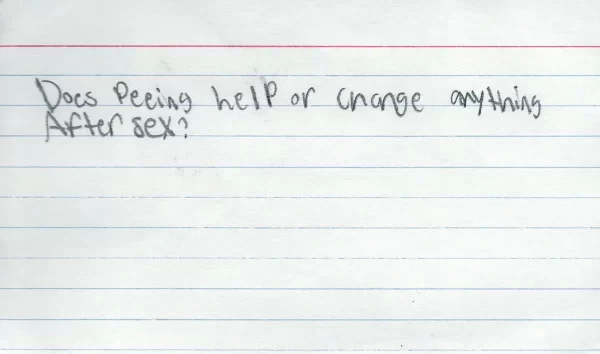
While peeing after sex won’t prevent pregnancy or transmission of sexually transmitted infections, it still is something that should be done after sex. Whether male or female-bodied, sex can cause bacteria to enter the urethra. Bacteria in the urethra can lead to a urinary tract infection (UTI). Peeing after sex helps lower the risk of getting a UTI for both body types.
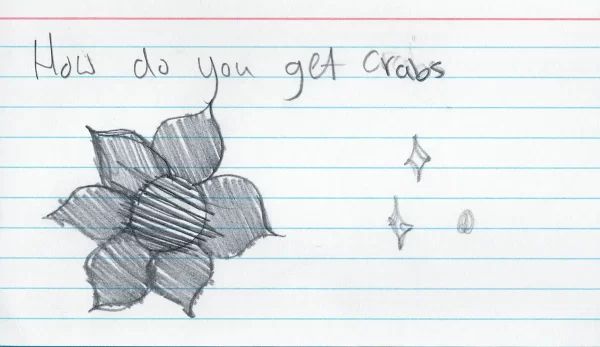
Crabs is a slang term for pubic lice. Pubic lice are like head lice in that they live in hair follicles and feed off the oils and skin cells we produce. Pubic lice can be transferred between partners during sexual contact when their pubic areas are in close contact. Lice can also be spread if someone shares clothing, especially underwear, or even lays on the same bed as someone that is infected.
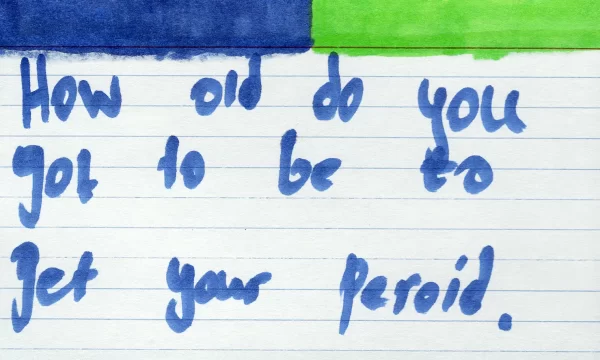
A period is one of the first indicators that someone has started puberty. There is no set age as to when puberty begins and it is different for each person. Puberty may begin as early as 8-9 years old or as late as 14-15. What’s most important to understand is that the period occurs around two weeks after the ovum, or egg is released. This is called ovulation. During ovulation is the highest chance someone can become pregnant. This means someone can get pregnant before they ever have their first period.
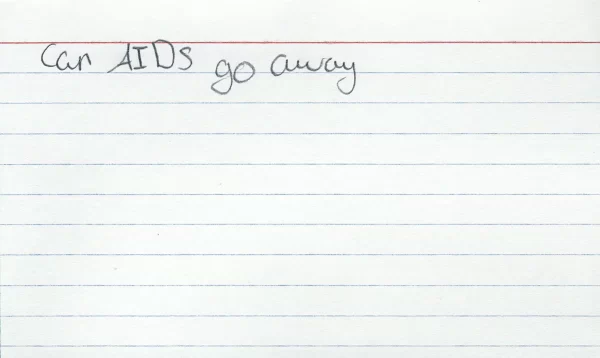
AIDS (Acquired Immune Deficiency Syndrome) is the diagnosis a person who has HIV (Human Immunodeficiency Virus) may receive if the virus is left untreated. Both AIDS and HIV are incurable. With proper treatment, the level of HIV in an infected person’s body can get so low, it may not show on a test. However, if that person were to stop taking their medicine, the viral amount would increase, as it never really went away.
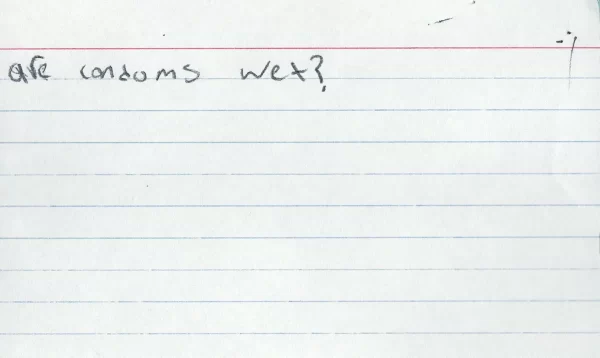
Most condoms come with a water-based lubricant on them in the package, so they will feel greasy rather than wet when handled. Lubricants help reduce the amount of friction created during sex. If you put the palms of your hands together and rub them, you will feel your hands start to get hot. This is due to friction. If condoms get too hot, the chance of them breaking increases dramatically. Also, too much friction during sex can be uncomfortable, or even painful for one or both partners.
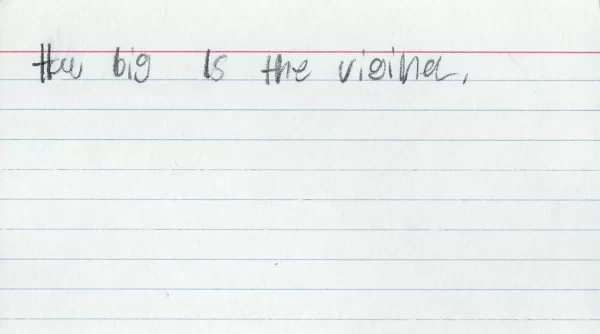
The vagina averages around 3 inches deep and around 2 inches wide. These measurements can change dramatically, however. When aroused, the vagina can become deeper and wider. During a vaginal birth, the vagina can widen enough to allow a baby to pass through it.
SHAPE??
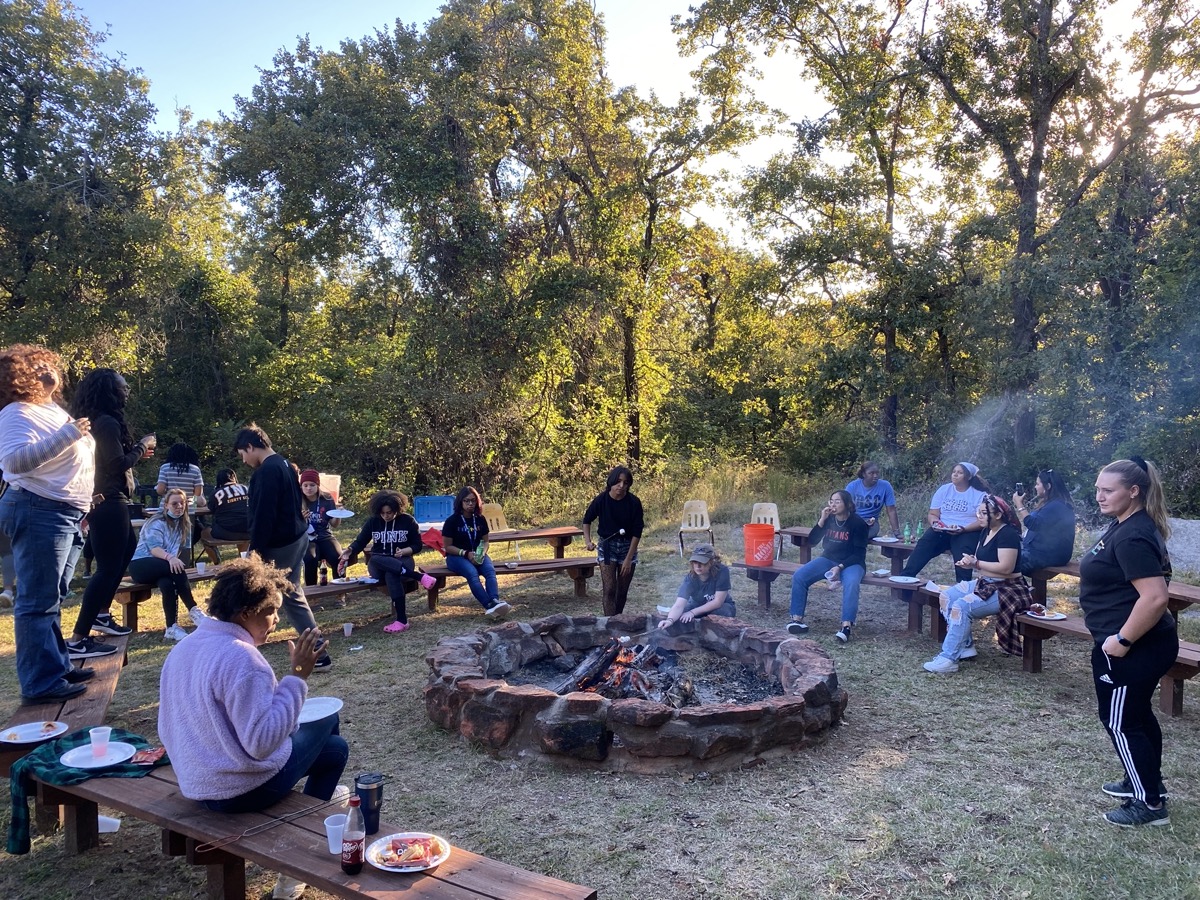
What is it?
Understanding that peers are a powerful influence during the early teen years,
Teen Empower developed SHAPE (Sexual Health And Peer Education), which engages high school youth as peer educators. Through training, we’ll teach you how to talk about sexual health topics like peer pressure, healthy relationships, communication skills, and negotiation techniques.
What's the training like?
It’s fun & FREE! Peer Educators attend workshops led by health and education professionals to learn how to present an evidence-based health curriculum to middle school students. You will also learn public speaking, classroom facilitation and student engagement skills. Ongoing training and support will be provided during the school year, along with leadership development and volunteer service-learning activities.
